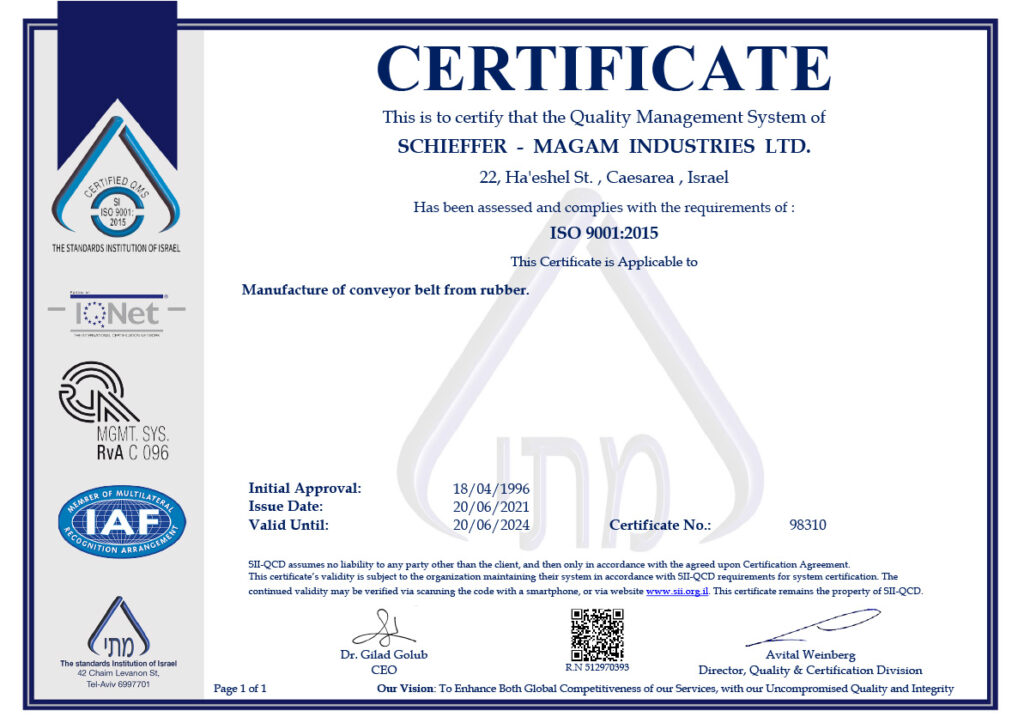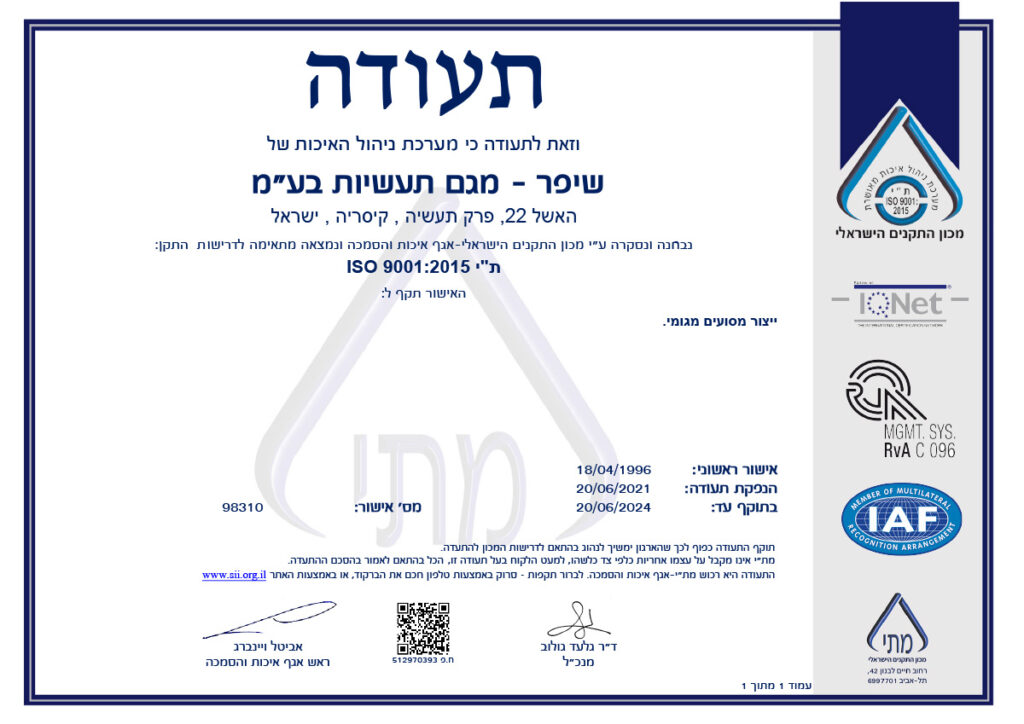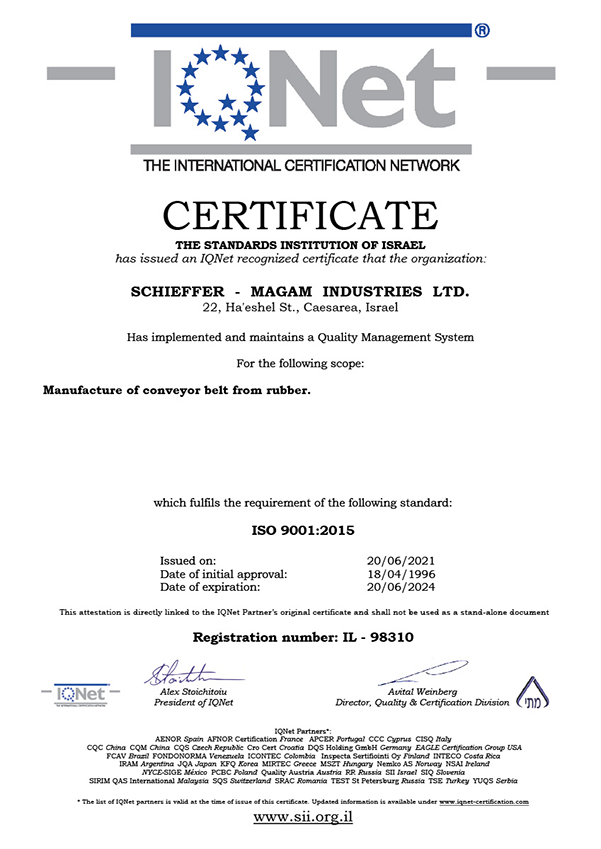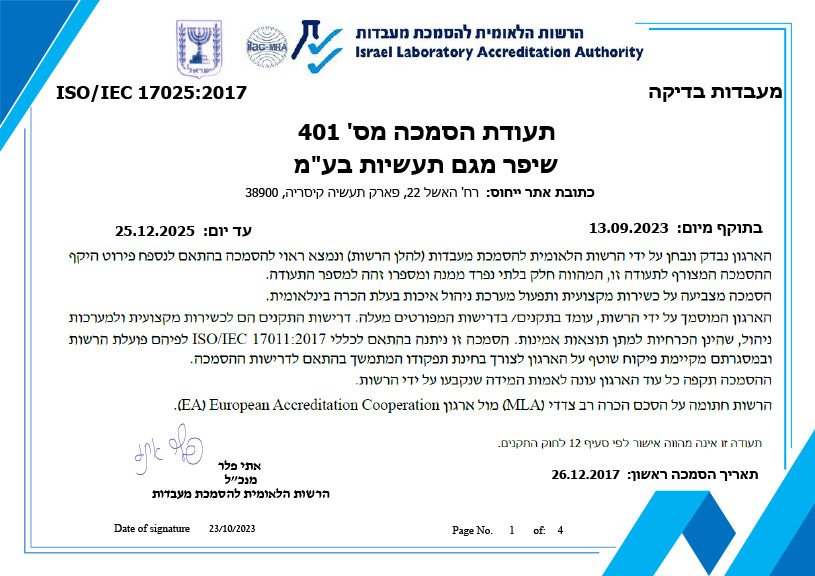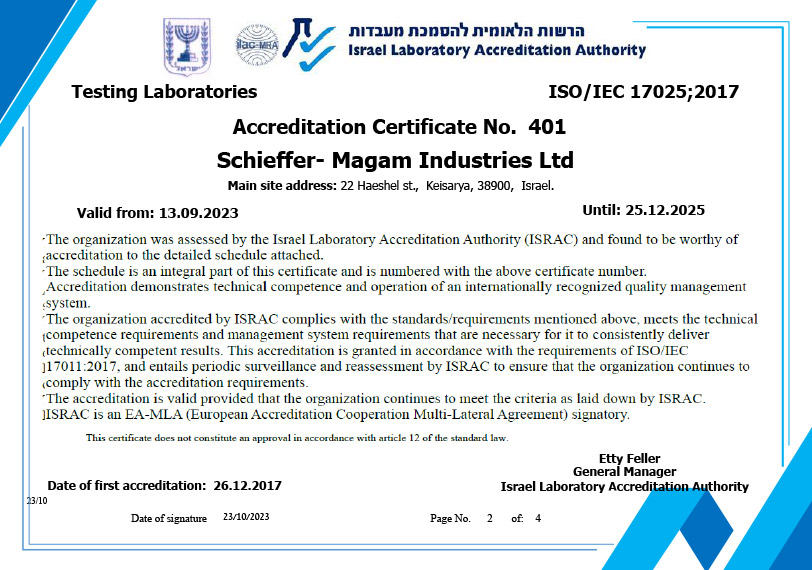Schieffer-Magam’s laboratory has extensive experience working with various types of elastomers and rubber compounds, such as SBR, NR, EPDM, NBR, CR, BR, ACM, HNBR, ECO, PU, CSM, MVQ, Viton, etc.
Most of the rubber compounds used in the production of conveyor belts and other products are based on formulations developed in the Schieffer-Magam laboratory.
The laboratory performs rheological, physical, and mechanical testing of elastomers, rubber compounds, and finished rubber products to meet standard requirements or customer specifications. Material properties present specific performance requirements for different types of rubber. Years of experience working with various rubber compounds have enabled Schieffer-Magam to develop new rubber compounds and products.
Laboratory tests are conducted according to standard testing methods. To ensure that testing data, procedures, equipment, and conditions are consistent, the results obtained are accepted and respected everywhere and are understandable and readable by all users.
Schieffer-Magam’s laboratory is the only rubber laboratory in Israel accredited by the National Laboratory Accreditation Authority. Our laboratory is accredited to provide testing services in the rubber field for over 10 standards and accredited according to the international standard ISO/IES 17025:2017.
The laboratory performs, among other things, rheological testing, physical property testing, rubber abrasion, tensile strength of conveyor belts, hardness, density, adhesion strength of belt layers, and more.
Abrasion check
The device tests the abrasion resistance of rubber compounds and products according to the standard.
Abrasion resistance testing is typically conducted for tires, soles, conveyor belts, hoses, and rubber flooring. These materials are exposed to high stress and wear during use but are expected to be resistant to abrasion throughout their service life.
The test is accredited to ISO 4649.
Material Density Testing
This test examines the mass density per unit volume of the material.
Density measurement, using concepts of volume and mass, reveals the relationship between density and material properties.
Density tests of rubber compounds and products are conducted according to the standard.
The test is accredited (ASTM D297)
Hardness Meter
Our development laboratory can test the abrasion resistance of various rubber types. We produce rubber with a range of materials and test its resistance. This allows us to tailor the exact composition of the material to meet customer needs. The abrasion machine adheres to the highest industry standards and is one of the few in Israel.
Tensile Tester
A device for testing strength under tension, compression, bending, shear, elongation, and more. The test examines physical properties of rubber compounds and adhesion strength between rubber layers with forces up to 5000 Newton. It can be used to test various raw materials, semi-finished products, and finished products essential for quality control manufacturers.
Accreditation: ISO 252, ASTM D412.
Rheological Properties Tester
Rheometer MDR, Rheometer ODR, Mooney.
Rheological tests involve studying plastic and elastic flow, as well as distortions occurring in the material’s spatial structure under applied forces and pressures. These tests are crucial for determining curing times of rubber compounds and developing formulations.
Accreditation: ASTM D2084, ASTM D1646
Instron Tensile Tester
A device for testing the tensile strength of conveyor belts up to 10 tons.
The test shows the maximum load the material can withstand in a tensile or pulling operation before failure or breaking.
The test allows examining elongation at break, strength, and tearing of different fabrics.
Testing these parameters is crucial in the conveyor belt manufacturing process.
Accreditation: TSI 632, ISO 283

